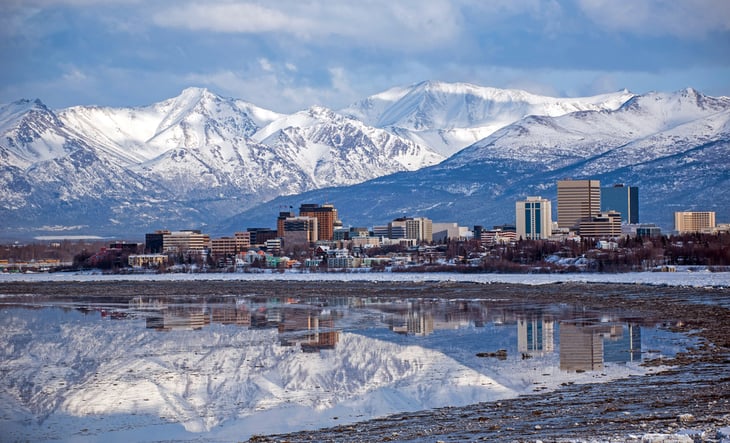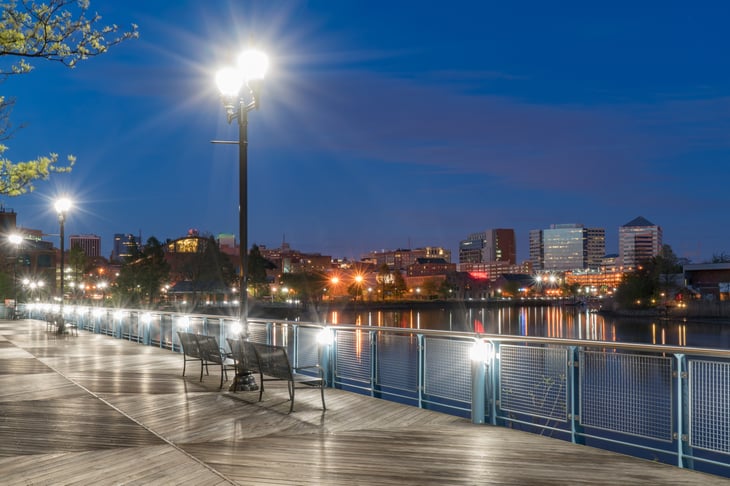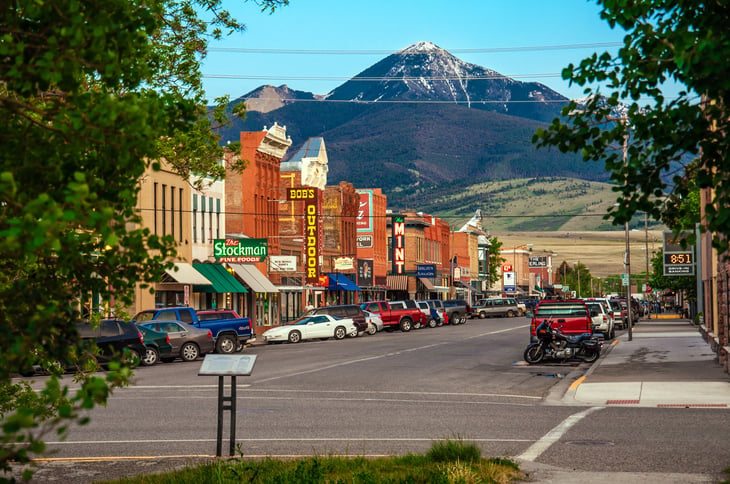
This story originally appeared on SmartAsset.com.
Just as there are several states with no income taxes, there are also multiple states forgoing sales taxes. These states don’t impose state-level sales taxes, meaning you won’t be assessed an additional fee when purchasing a retail good or service.
This can make a huge difference in how much you pay for retail items, since rates can range as high as 7.25% in California, according to research from Tax Foundation.
Sales taxes are amounts of money added to the cost of a product or service when purchased by a consumer. After the point of purchase, retailers then pass these taxes on to the state and/or local government.
Currently, 45 states and the District of Columbia impose a general sales tax, but there are exceptions that don’t charge statewide sales taxes at all. Of those, however, some allow localities to impose sales taxes and excise taxes. We explore those states next.
Alaska

Alaska doesn’t charge a statewide sales tax, but that doesn’t mean that the state is wholly devoid of sales tax. Some municipalities impose local sales taxes of up to 7.85%.
For instance, Kalifornsky charges a local sales tax of 3%, while Soldotna imposes a combined sales tax of 6%. Juneau’s sales tax is 5%.
Delaware

Though Delaware doesn’t impose a state sales tax, it does require certain businesses to pay a gross receipts tax. Consumers don’t have to account for this tax, but the sellers of the goods or services do.
The gross receipts tax rates vary based on business activity, typically ranging from 0.0945% to 0.7468%, according to the state’s Division of Revenue website.
Montana

Montana is quite similar to Alaska in that it allows localities to assess a sales tax. These cities are usually tourist destinations, and they charge resort and local option taxes.
The resort tax is a local option tax charged on the retail value of products and services sold by recreational facilities, camping and lodging facilities, restaurants and other food establishments, public establishments serving alcohol, and establishments selling luxury items, according to the Montana Department of Transportation and Land Use. Montana’s resort tax municipalities are currently Red Lodge, Whitefish, Virginia City, and West Yellowstone.
These taxes are levied at the city and county levels and cannot exceed 3%. But the taxes only apply to areas with populations under 5,500 that meet state-imposed resort qualifications.
New Hampshire

Neither the state of New Hampshire nor any of its localities charge a sales tax, but certain goods and services garner excise taxes and other taxes.
These include a 9% tax on room and car rentals, a 9% tax on restaurants, a 7% tax on phone services, and a tax of $0.00055 cents per megawatt-hour on electricity.
Oregon

Like New Hampshire, Oregon doesn’t impose a state-wide sales tax. The state does, however, allow cities to impose their own sales taxes.
For instance, Ashland charges a 5% local sales tax on the sale of prepared food.
Oregon also charges excise taxes, which are levied on cigarettes, tobacco, alcohol, gasoline, and other products.
Bottom Line

If you live in any of the five states mentioned previously, you can count out any state-level sales taxes on your purchases.
You may pay local sales taxes, excise taxes, resort/local option taxes, or related taxes depending on where you live, however, so it’s wise to check your city’s official government website so you won’t be blindsided by any additional fees.





Add a Comment
Our Policy: We welcome relevant and respectful comments in order to foster healthy and informative discussions. All other comments may be removed. Comments with links are automatically held for moderation.